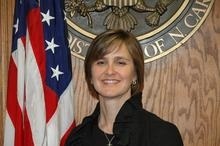CHARLOTTE, N.C. (Legal Newsline) - The contested strategy of a Georgia-Pacific unit created to clear asbestos claims will continue in bankruptcy court, a judge has ruled much to the dismay of plaintiff lawyers hoping to get their clients bigger paydays in civil courts.
A 59-page ruling from North Carolina bankruptcy judge Laura Beyer rejects the third and fourth attempts to end Bestwall's bankruptcy proceeding and reinforces earlier rulings that said a company need not be in financial distress to head to bankruptcy court.
Bestwall has so far avoided adverse rulings as it tries to handle asbestos claims cheaper by avoiding costly litigation in courts around the country, plus exposure to massive verdicts from juries sympathetic to plaintiffs.
In the bankruptcy system, companies with asbestos liabilities create a more streamlined payout system for claims in a single court. Companies like Georgia-Pacific, Johnson & Johnson and 3M have sought to utilize bankruptcy courts when facing thousands of claims, though the latter two have been blocked from doing so.
Johnson & Johnson created LTL for asbestos claims from its talcum powder, while 3M used Aearo for ear plug hearing loss suits.
Even though courts in different federal circuits found those units were being improperly used to game the bankruptcy system, Beyer wrote Feb. 21 that Georgia-Pacific has done nothing wrong.
"The Founding Fathers, like many contemporary observers, might be surprised that an entity like the Debtor with access to significant financial resources has sought bankruptcy protection," she wrote.
"Their presumed astonishment, however, does not mean that the Debtor has violated the subject matter jurisdiction of the bankruptcy court, and the question of whether the Debtor should be able to access the bankruptcy system is different than the question of whether the Constitution bars it."
Beyer refused to make a "policy judgment" about whether a company worth more than $27 billion should be allowed to use the bankuptcy system, finding only that the language of the Bankruptcy Clause does not prevent it from doing so.
Beyer found much of the new dismissal arguments actually seeks reconsideration of her order denying earlier motions. One of the parties who brought a new motion to dismiss has filed a motion to appeal.
"The court’s conclusion is buttressed by the complete lack of support for the Committee’s novel argument in the relevant case law, the practical problems with a jurisdictional financial distress requirement, the policy decision to encourage potential debtors to file their cases early, the Supreme Court’s recent approach to issues of subject matter jurisdiction, and the ability of bankruptcy courts to use other tools to address the problem asserted by the Committee," she wrote.
Dozens of companies facing asbestos lawsuits have created bankruptcy trusts to avoid the costs of litigation when paying claimants.
Bestwall is currently sorting out how much it needs to place in its trust and wants to show past settlements from the civil justice system are no indication of future responsibilities because those settlements were inflated by the business practices of plaintiffs lawyers.
The argument – one that has been successful before – is that asbestos lawyers target some companies with civil lawsuits while blaming others that have set up bankruptcy trusts for the same illnesses.
Before Garlock Sealing Technologies convinced a judge this was happening, companies facing lawsuits had no way to prove the same clients were telling different exposure histories in claims made to bankruptcy trusts.
After the Garlock ruling, which came after the company showed exposure history contradictions in the 15 cases it was permitted to investigate, 17 states passed laws requiring automatic disclosure of trust claims to civil defendants so they could find out who was being blamed for what.
Bestwall is taking the hit for all asbestos liabilities for Georgia-Pacific, which has argued through the years with lawyers over whether its joint compound contained asbestos.
